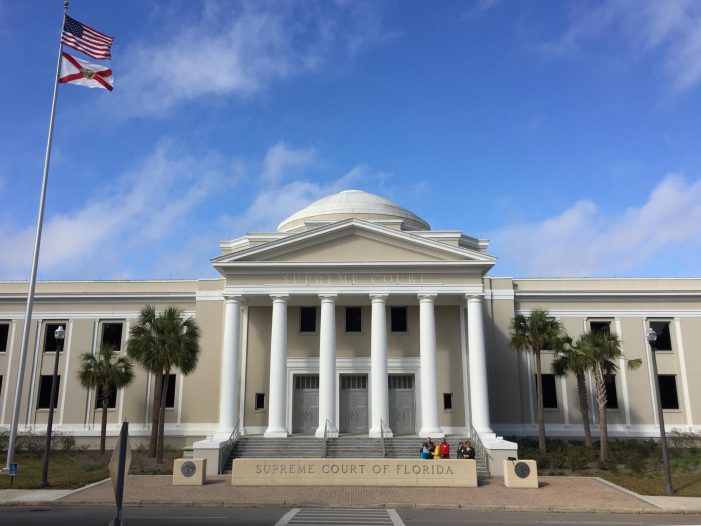By Jim Saunders, The News Service of Florida
TALLAHASSEE — A state panel will meet in July to consider revising a “financial impact statement” that has touched off a legal fight as Floridians prepare to vote this fall on a proposed constitutional amendment about abortion rights.
But while revisions could be coming, state lawyers Thursday argued that an appeals court should reject a Leon County circuit judge’s ruling that would force changes in the financial impact statement.
The state lawyers filed a 50-page brief at the 1st District Court of Appeal contending that Leon County Circuit Judge John Cooper did not have the authority to order the panel, known as the Financial Impact Estimating Conference, to redraft the statement. Amid the legal wrangling, the panel has scheduled meetings July 1 and July 8 to consider revisions.
Floridians Protecting Freedom, a political committee leading efforts to pass the constitutional amendment, filed a lawsuit in April contending the financial impact statement was out-of-date and inaccurate. The Financial Impact Estimating Conference is the defendant in the lawsuit.
“Although the conference will proceed with its July meetings even if it prevails in this case, this (appeals) court’s intervention is necessary because the circuit court unlawfully compelled the conference to redraft its financial impact statement and ‘retain(ed) jurisdiction’ to ensure that any redraft is to the circuit court’s liking,” the brief filed late Thursday afternoon said. “The court imposed on the conference, for example, an extra-statutory obligation to ‘justify’ any deviation from its original findings. And plaintiffs have already signaled that they would challenge any redraft that they believe is invalid.”
Financial impact statements, which often draw little attention, appear with ballot initiatives to provide estimated effects of the measures on government revenues and the state budget. The panel issued the statement for the abortion proposal in November 2023.
But Floridians Protecting Freedom filed the lawsuit after the state Supreme Court issued two major abortion rulings on April 1, including a ruling that allowed a law to take effect preventing abortions after six weeks of pregnancy. The political committee argued that the statement needed to be revised because of the Supreme Court rulings.
Cooper, in a June 10 decision, agreed with the committee and ordered that the statement be redrafted within 15 days. He wrote that the statement violates the Florida Constitution and state law “because it presents largely outdated information about the legality of abortion under statutes and litigation unrelated to Amendment 4 (the abortion amendment).”
Cooper’s order is on hold while the state appeals. The state’s lawyers contend, in part, that only the Florida Supreme Court could legally review the financial impact statement. What’s more, they said the Supreme Court in 2019 decided against issuing what are known as “advisory” opinions about financial impact statements.
“The court below (Cooper) unlawfully injected itself into the citizens’ initiative process by ordering the Financial Impact Estimating Conference to redraft the financial impact statement that will accompany the proposed abortion amendment that the people will vote on in this fall’s election,” Thursday’s brief said.
The Tallahassee-based appeals court has expedited consideration of the case, with Floridians Protecting Freedom required to file a brief by a Tuesday deadline. The state then will have until July 1 to file another brief — meaning the case will likely not be resolved before the panel starts considering revisions.
The proposed constitutional amendment, which has drawn opposition from Gov. Ron DeSantis and other state Republican leaders, seeks to enshrine abortion rights in the Constitution. It says, in part, that no “law shall prohibit, penalize, delay, or restrict abortion before viability or when necessary to protect the patient’s health, as determined by the patient’s healthcare provider.”
The financial impact statement issued in November included caveats about litigation surrounding state abortion laws and concluded, “Because there are several possible outcomes related to this litigation that differ widely in their effects, the impact of the proposed amendment on state and local government revenues and costs, if any, cannot be determined.”

